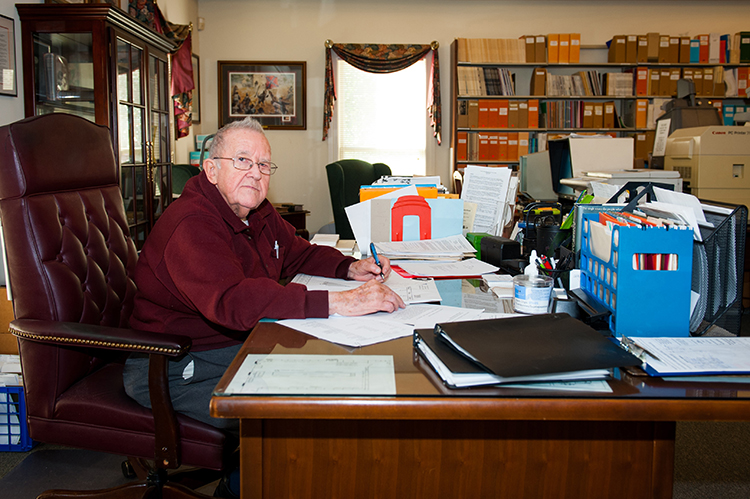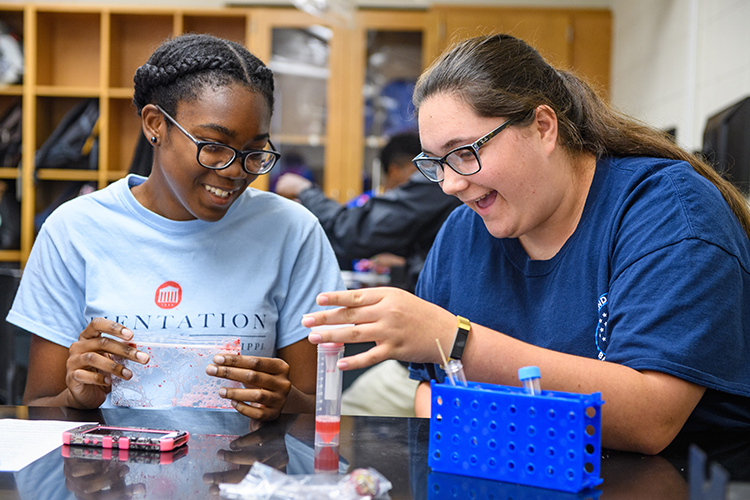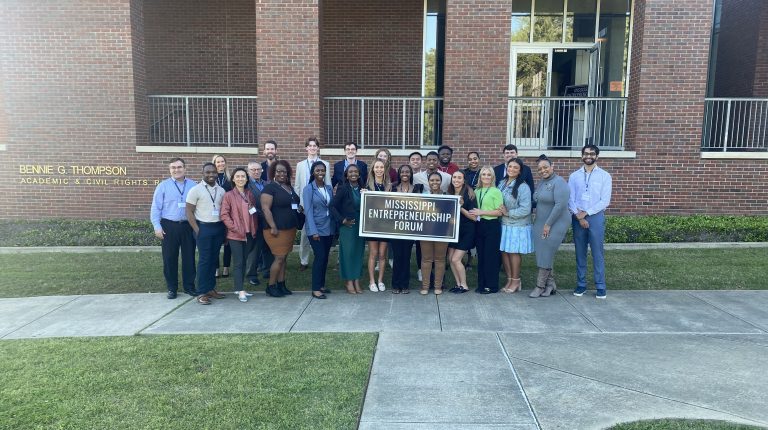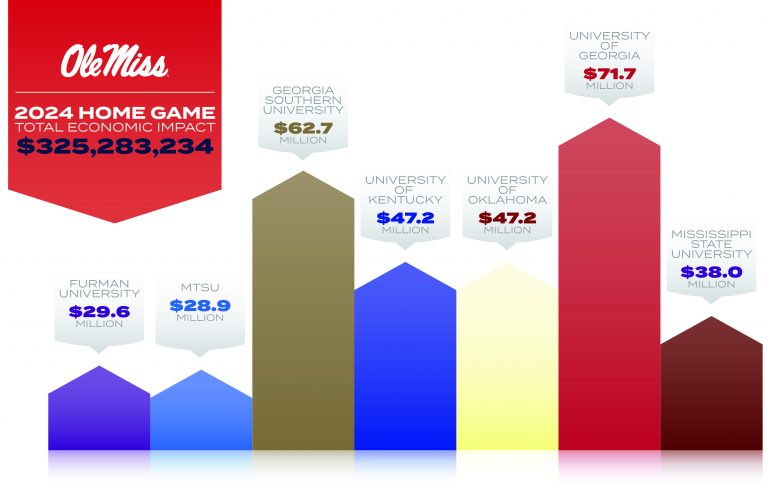
The late Wilbrod St. Amand, a biology professor, directed $1 million from his estate to the University of Mississippi to support laboratories, professors and instructors. He and his wife, the late Georgia Ann St. Amand, an assistant professor of biology, doted on their students and felt they were their children. Photo by Kirsten Simpson/University Development
St. Amand gift provides funding for lab equipment and teaching awards
University of Mississippi biology professor Wilbrod St. Amand loved his students and recognized the importance of resources in higher education, whether they support laboratories or professors and instructors.
In his estate, St. Amand left some $1 million to ensure there is support for all three. The largest part of the gift is designated for the St. Amand Biology Labs Endowment, providing income for annual supplies and upkeep for the department’s laboratories.
Another portion of the gift establishes a new universitywide teaching award and the final part is earmarked for a laboratory teaching-assistant award in biology that he had created in memory of his wife, Georgia Ann, an assistant professor of biology.
“I am convinced that the most important part in any endeavor is the foundation that you have to build from,” St. Amand said in a 2019 interview. “Where is the foundation in biology? To me, the foundation is in the laboratory.”
Noel Wilkin, UM provost and executive vice chancellor for academic affairs, acknowledged the importance of maintaining a high level of research activity to bolster science education.
“The rising cost to excel at research and instruction is due to the rising cost of support, supplies, equipment and facilities,” Wilkin said. “Biology is no exception. This gift will help us to continue offering high-quality education and conducting research in the field of biology.”
St. Amand died in January 2022 at age 94. He joined the Ole Miss faculty as an assistant professor of biology in fall 1958 and became a full professor, teaching until his 1984 retirement.
The St. Amand Outstanding Teaching Award Endowment will honor a non-tenure-track faculty member each year. Recipients receive a plaque and a monetary award of $10,000 to be presented annually at the Honors Day Convocation.
Louise Burney, an accountancy instructor, was honored in April as the inaugural winner of the award.
The Georgia St. Amand Laboratory Teaching-Assistant Award will provide $2,000 apiece to at least three teaching assistants annually for demonstrated excellence in instruction and teaching.
“If something is done well, then I think that individual deserves recognition,” said St. Amand, who in 1970 received the Elsie M. Hood Outstanding Teaching Award, which he touted as one of his greatest honors and the inspiration for his gift to establish the laboratory teaching-assistant award.
William Rhodes, a clinical assistant professor emeritus in the university’s Patterson School of Accountancy, serves as the executor of St. Amand’s estate and was his friend for 40 years.
“Dr. St. Amand really loved his interactions with his students,” Rhodes said. “He felt that teaching was the most important responsibility of a faculty member. Dr. St. Amand believed that you should take every interaction with students seriously because you don’t know what comment or kind word would light a candle – serving to build up and inspire someone. He loved people, life and nature.”
The professor also loved the university, and he respected those who show loyalty, Rhodes said.
“That’s why the new teaching award in his name is to recognize those who have been on the faculty for at least eight years,” he said. “That length of time would show loyalty to this institution.”
The St. Amands doted on their students.
“Georgia Ann and I felt that our students were our children, and we had many of them,” said the late professor, who had no biological children.
The St. Amands valued the importance of hands-on experiences for biology students, said Sixue Chen, professor and chair of the Department of Biology.
“His endowments will enable us to offer state-of-the-art laboratory courses and provide support to our dedicated teaching assistants,” Chen said. “His legacy will have a lasting impact on our next generation of scientists, leaders and citizens.”
A native of Old Town, Maine, St. Amand was enrolled in the ROTC program at the University of Maine when he was deployed as a Navy yeoman and served in the North Atlantic during the last months of World War II. He returned to the university to complete a bachelor’s degree in zoology in 1948.
He earned master’s and doctoral degrees in biology at the University of Tennessee, where he met his wife, Georgia Ann, of Orangeburg, South Carolina, who was also a biologist. After graduating, the St. Amands were employed at the Oak Ridge National Laboratory, and Wilbrod joined the Army Reserves.
“Dr. St. Amand was the last of the great generation who grew up during the Depression,” Rhodes said. “He was very thrifty and would not spend any money on himself; he saved a lot. That’s how his generous gifting was made possible.”
Off campus, St. Amand was a founding member of the Oxford Kiwanis Club, where he served as an officer and was involved in service projects. He helped organize the local Alzheimer Caregivers’ Support Group and assisted hundreds of individuals who were dealing with dementia.
St. Amand spent his retirement years as a volunteer in the genealogy room of the Lafayette County-Oxford Public Library, helping patrons discover their roots, and also worked to document the cemetery records of every cemetery in Lafayette County. His community service was honored in 2013, when he was named Citizen of the Year of Oxford and Lafayette County.
He also was involved in local veterans’ organizations and a reader at Veterans’ Day ceremonies of the names of veterans who died each year. St. Amand read four newspapers daily and clipped all obituaries of veterans, Rhodes said.
To make a gift to any of the three St. Amand endowments, send a check with the endowment’s name noted in the memo line, to the University of Mississippi Foundation, 406 University Ave., Oxford, MS 38655 or online here: St. Amand Biology Labs Endowment, St. Amand Outstanding Teaching Award Endowment or the Georgia St. Amand Laboratory Teaching-Assistant Award Endowment.
By Tina H. Hahn





